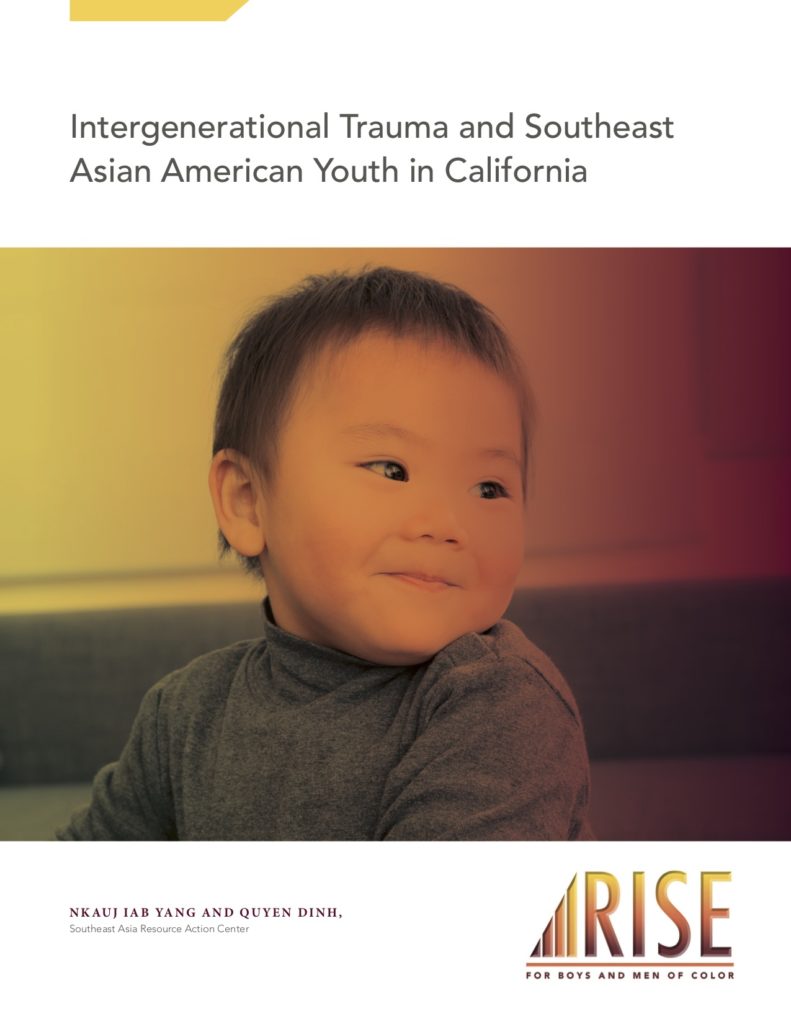July 15, 2019 IN: California, Health, National
Read about Southeast Asian American intergenerational trauma during Minority Mental Health Awareness Month

Sacramento, CA– This Minority Mental Health Awareness Month, SEARAC and RISE for Boys and Men of Color are revisiting the policy brief Intergenerational trauma and Southeast Asian American Youth in California, released in April 2018 to retrace how the unique historical war trauma in Cambodia, Laos, and Vietnam and growing up in low-income neighborhoods contribute to ongoing trauma for California’s Southeast Asian American (SEAA) youth.
It has been 40 years since SEAA families fled war and genocide to seek refuge in this country, but the impact is long lasting and continues to linger for SEAA refugees and our subsequent generations. SEAA communities continue to face high rates of poverty and criminalization, low education attainment, and little access to culturally appropriate health and mental health care.
This brief examines key traumatic pre- and post-migration experiences, current socioeconomic distress, and today’s youth experiences, ultimately offering policy recommendations to address intergenerational trauma in the SEAA community. It also serves as a stepping stone to acknowledge the glaring health and mental health disparities that SEAA youth and their families are forced to endure. For example, for SEARAC’s current Mental Health Story Collection-California campaign, one respondent shared, “[My parents] suffered from post-traumatic stress disorder (PTSD), and their depression negatively affected our family. I remember when I was younger … my father wasn’t able to sleep at night due to his flashbacks of the war. This went on for years, but he gradually came to terms with it with the help of my mother by his side.“
“For too long, Southeast Asian American narratives, mental health concerns, alarming issues, and voices have gone unheard and overlooked, perpetuating the silencing of our struggles and fight for equity,” said Nkauj Iab Yang, Director of California Policy and Programs at SEARAC. “We must act now by improving data collection and reporting, create and implement transformative educational solutions, and provide culturally appropriate social services that address intergenerational trauma and health in order to move toward community healing and prevent future generations and communities from facing similar experiences.“




